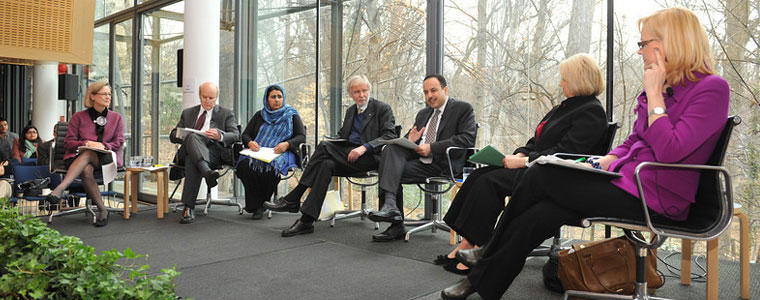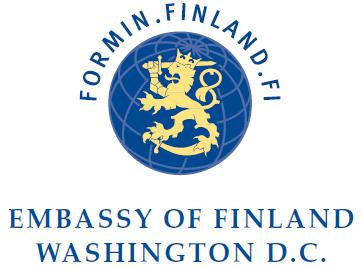Women, Peace and Security in Afghanistan: Prospects on the Way Forward
The Embassy of Finland and USIP hosted a panel discussion titled "Women, Peace, and Security in Afghanistan: Prospects on the Way Forward." The discussion offered a timely follow-up to the International Afghanistan Conference held in Bonn in December 2011. The panelists representing the governments of Afghanistan, Finland and the United States, as well as Afghan civil society examined ways to better ensure an active role for women in the current peace processes and reconstruction efforts.

Since November 2010, Finland and Afghanistan have cooperated closely to build a solid, inclusive and transparent coordination among the relevant ministries, and to eventually prepare an Afghan National Action Plan on United Nations Security Council Resolution 1325. Finland implemented its own National Action Plan in 2008. Most recently, an Executive Order was signed by President Obama instituting a U.S. National Action Plan on Women, Peace, and Security to accelerate, institutionalize, and better coordinate efforts to advance women’s inclusion in peace negotiations, peacebuilding activities, and conflict prevention; to protect women from sexual and gender-based violence; and to ensure equal access to relief and recovery assistance.
On Thursday, February 16, 2012 from 10:00am to 11:30am the Embassy of Finland and USIP hosted a panel discussion that offered a timely follow-up to the International Afghanistan Conference held in Bonn in December 2011. The panelists representing the governments of Afghanistan, Finland and the United States, as well as Afghan civil society examined ways to better ensure an active role for women in the current peace processes and reconstruction efforts.
Panelists
- H.E. Ritva Koukku-Ronde, Welcome
Ambassador of Finland - Dr. Erkki Tuomioja
Minister for Foreign Affairs of Finland - H.E. Eklil Ahmad Hakimi
Ambassador of Afghanistan - Ambassador Donald Steinberg
Deputy Administrator, U.S. Agency for International Development - Ambassador Melanne Verveer
Ambassador-at-Large for Global Women’s Issues, U.S. Department of State - Ms. Eva Biaude
Ombudsman for Minorities, Government of Finland - Ms. Samira Hamidi
Afghanistan Country Director, Afghan Women Network - Dr. Kathleen Kuehnast, Moderator
Director, Center for Gender and Peacebuilding, United States Institute of Peace
In Collaboration with:
Explore Further




